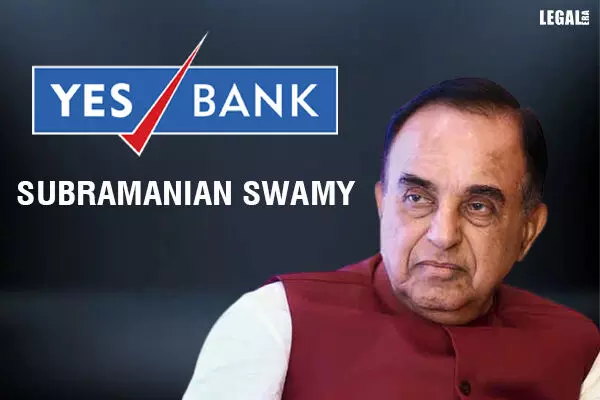- Home
- News
- Articles+
- Aerospace
- Artificial Intelligence
- Agriculture
- Alternate Dispute Resolution
- Arbitration & Mediation
- Banking and Finance
- Bankruptcy
- Book Review
- Bribery & Corruption
- Commercial Litigation
- Competition Law
- Conference Reports
- Consumer Products
- Contract
- Corporate Governance
- Corporate Law
- Covid-19
- Cryptocurrency
- Cybersecurity
- Data Protection
- Defence
- Digital Economy
- E-commerce
- Employment Law
- Energy and Natural Resources
- Entertainment and Sports Law
- Environmental Law
- Environmental, Social, and Governance
- Foreign Direct Investment
- Food and Beverage
- Gaming
- Health Care
- IBC Diaries
- In Focus
- Inclusion & Diversity
- Insurance Law
- Intellectual Property
- International Law
- IP & Tech Era
- Know the Law
- Labour Laws
- Law & Policy and Regulation
- Litigation
- Litigation Funding
- Manufacturing
- Mergers & Acquisitions
- NFTs
- Privacy
- Private Equity
- Project Finance
- Real Estate
- Risk and Compliance
- Student Corner
- Take On Board
- Tax
- Technology Media and Telecom
- Tributes
- Viewpoint
- Zoom In
- Law Firms
- In-House
- Rankings
- E-Magazine
- Legal Era TV
- Events
- Middle East
- Africa
- News
- Articles
- Aerospace
- Artificial Intelligence
- Agriculture
- Alternate Dispute Resolution
- Arbitration & Mediation
- Banking and Finance
- Bankruptcy
- Book Review
- Bribery & Corruption
- Commercial Litigation
- Competition Law
- Conference Reports
- Consumer Products
- Contract
- Corporate Governance
- Corporate Law
- Covid-19
- Cryptocurrency
- Cybersecurity
- Data Protection
- Defence
- Digital Economy
- E-commerce
- Employment Law
- Energy and Natural Resources
- Entertainment and Sports Law
- Environmental Law
- Environmental, Social, and Governance
- Foreign Direct Investment
- Food and Beverage
- Gaming
- Health Care
- IBC Diaries
- In Focus
- Inclusion & Diversity
- Insurance Law
- Intellectual Property
- International Law
- IP & Tech Era
- Know the Law
- Labour Laws
- Law & Policy and Regulation
- Litigation
- Litigation Funding
- Manufacturing
- Mergers & Acquisitions
- NFTs
- Privacy
- Private Equity
- Project Finance
- Real Estate
- Risk and Compliance
- Student Corner
- Take On Board
- Tax
- Technology Media and Telecom
- Tributes
- Viewpoint
- Zoom In
- Law Firms
- In-House
- Rankings
- E-Magazine
- Legal Era TV
- Events
- Middle East
- Africa
Delhi High Court Seeks Response from Centre, RBI and SEBI on Swamy's plea on Yes Bank

Delhi High Court Seeks Response from Centre, RBI and SEBI on Swamy's plea on Yes Bank
The Delhi High Court has sought response of the Centre, Reserve Bank of India (RBI) and Securities Exchange Board of India (SEBI) on former Rajya Sabha MP Subramanian Swamy's plea seeking investigation by experts' committee into the transfer of Yes Bank's stressed assets to J.C. Flowers Asset Reconstruction Company.
A division bench of Chief Justice Satish Chandra Sharma and Justice Subramonium Prasad also asked Yes Bank and the asset reconstruction company to respond. However, no formal notice was issued in the matter.
A Public Interest Litigation (PIL) was filed by Swamy who also sought direction from the Centre, RBI and SEBI to formulate proper and comprehensive guidelines in view of recommendations of the committee to check similar agreements or transactions in future.
A stress asset portfolio of Rs 48,000 crore was transferred from Yes Bank to J.C. Flowers Asset Reconstruction Company.
The PIL reads, “This transfer is linked to another deal in which Respondent No.4 (Yes Bank) has obtained a stake of up to 19.9 per cent in the company of Respondent No. 5. (Asset Reconstruction Company).”
In its petition, Swamy submitted that the private banking business is suffering from a "growing rot" that has been accelerated by the "perpetual decay" of corporate governance and moral standards in the private banking and asset reconstruction industries.
“This is a growing case of concern as there is apparent conflict of interest between the functioning of banks & ARCs. The situation is further complicated, when motivated and mala fide transactions between the two are allowed to stand as the regulator (RBI), fails to act & enforce its own guidelines causing significant loss of public monies,” the petition states.
Non-Performing Assets (NPAs) are a major worry for private sector banks in India, according to Swamy. He claims that ineffective internal controls and weak credit risk management practices are to blame for the high levels of NPAs in these banks.
According to the PIL, “the transfer of a distressed asset portfolio worth Rs 48,000 crore to Respondent No.5 (asset reconstruction company) through these transactions appears to be a blatant attempt to circumvent laws and regulations in favour of Respondent No. 5. This not only undermines the trust of the public in the banking sector but also jeopardizes the economic stability of the country. It is alarming to see how Respondent No. 4 (Yes Bank) is willing to sacrifice the recovery of public funds for the benefit of one company.”



